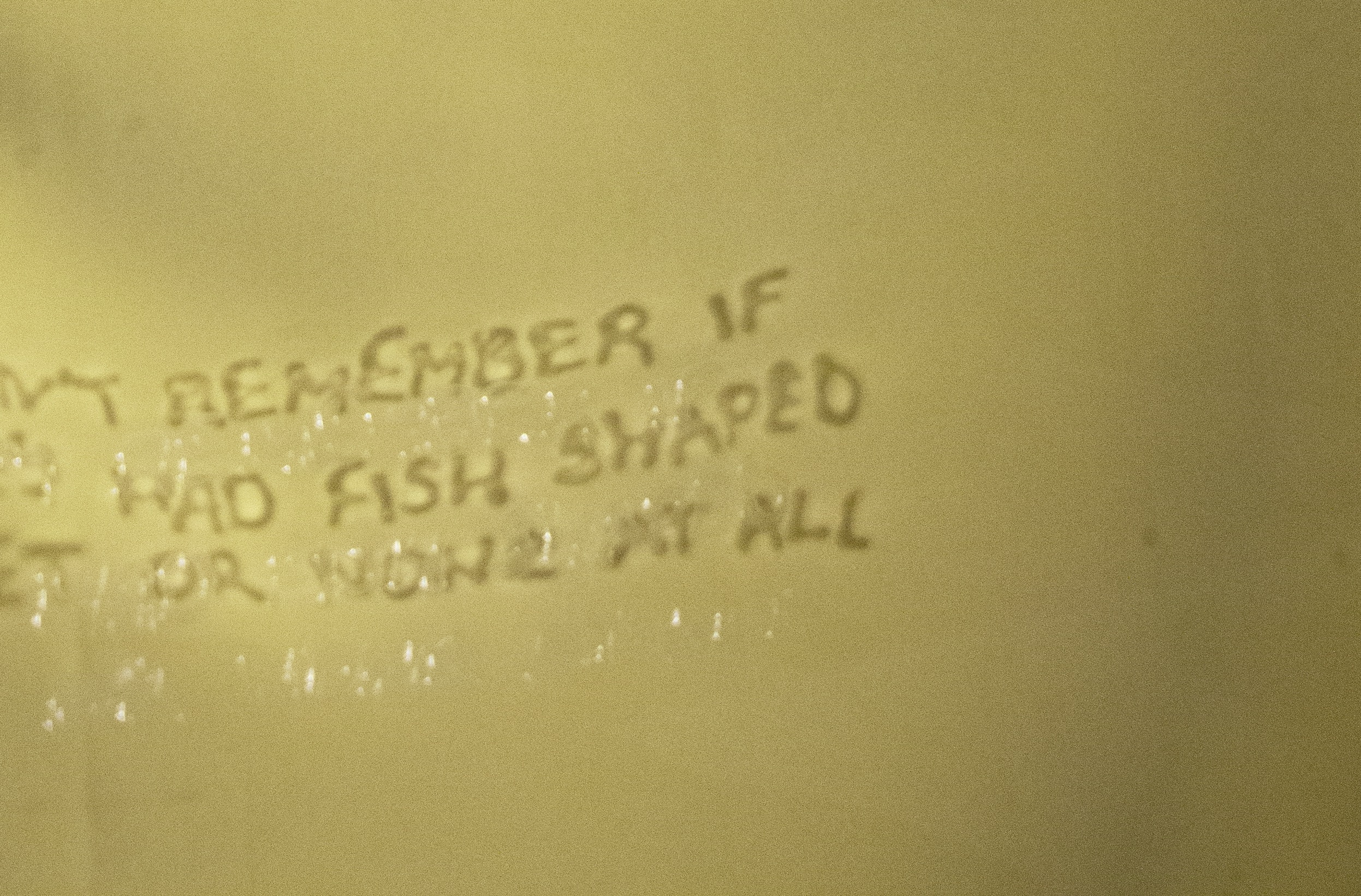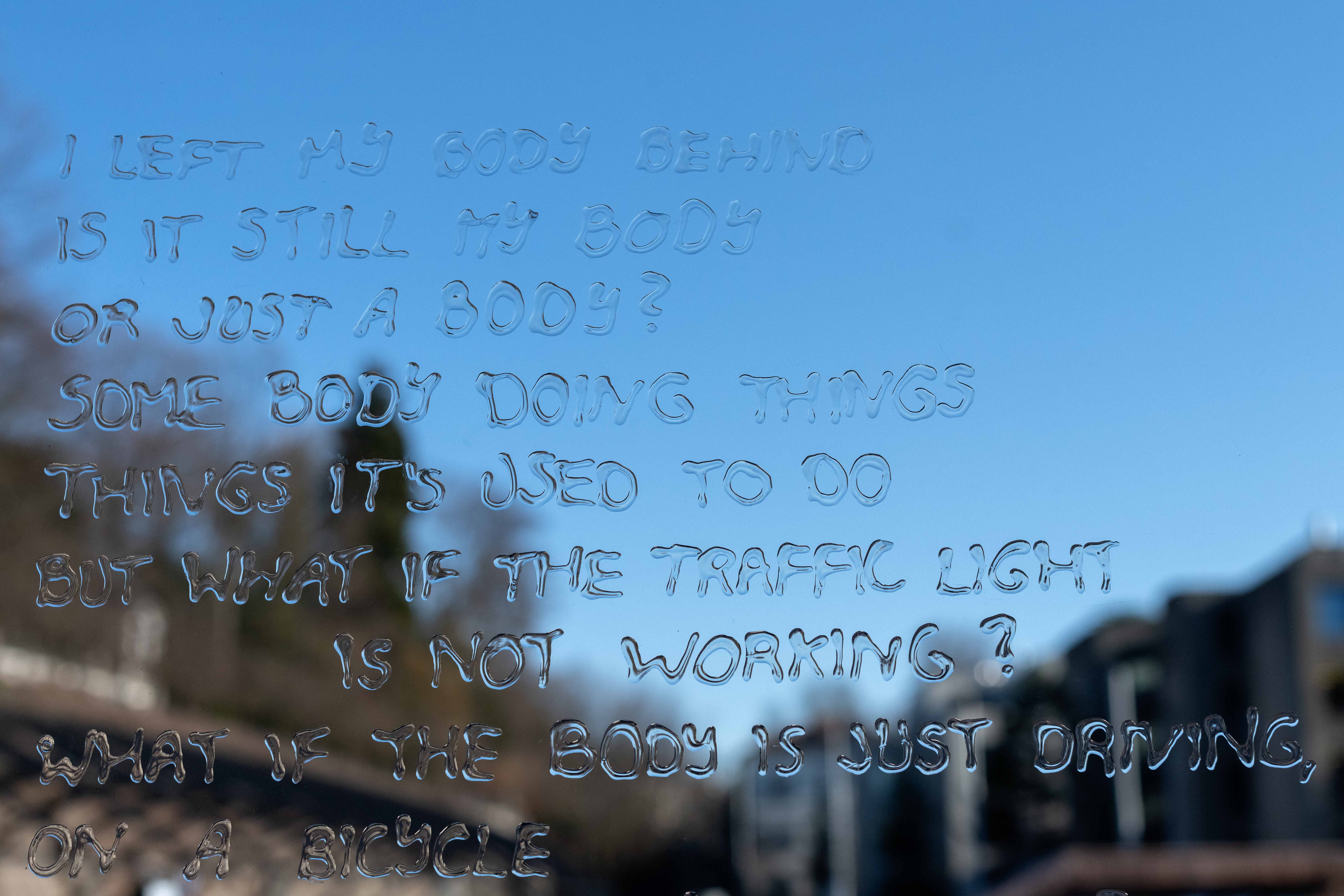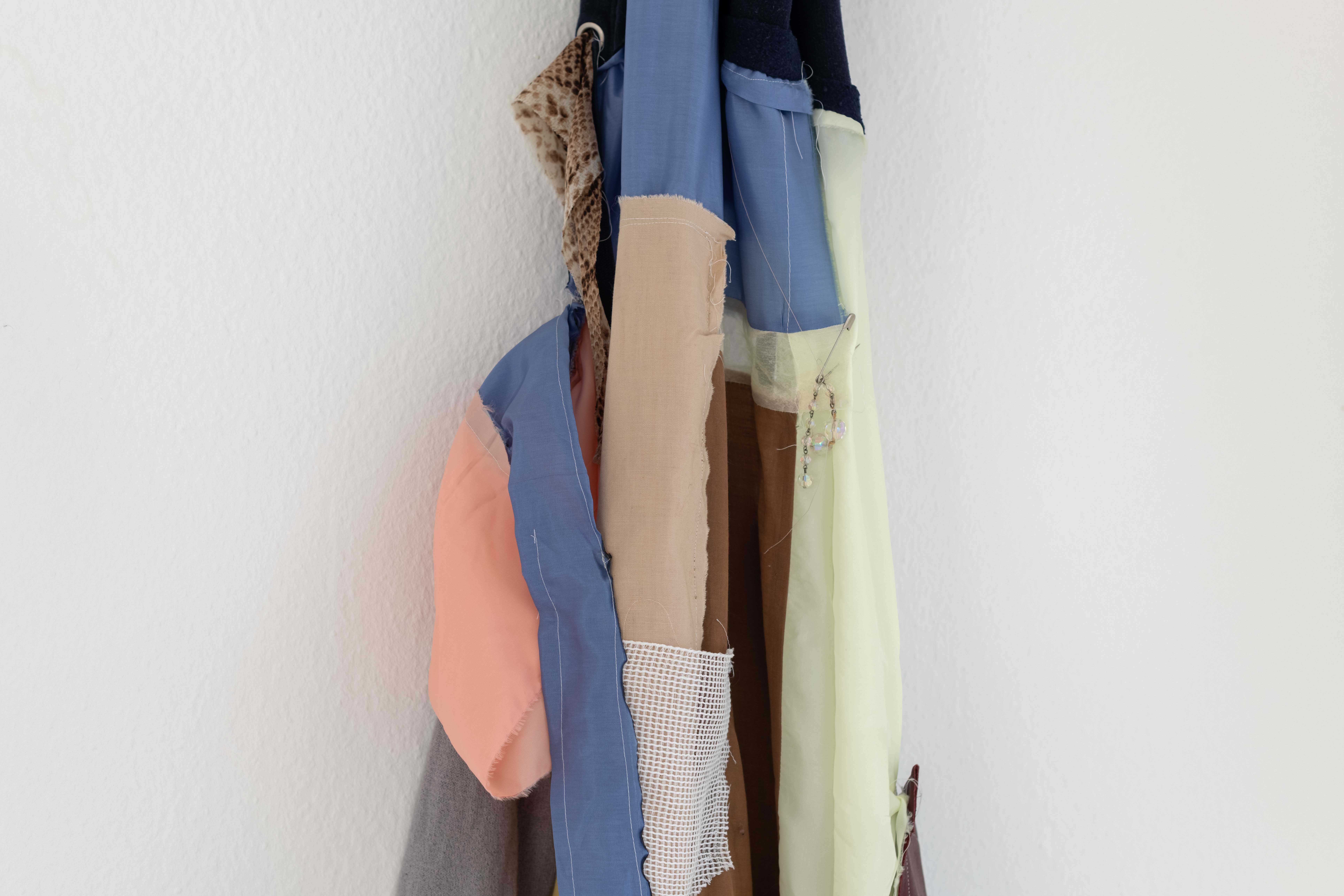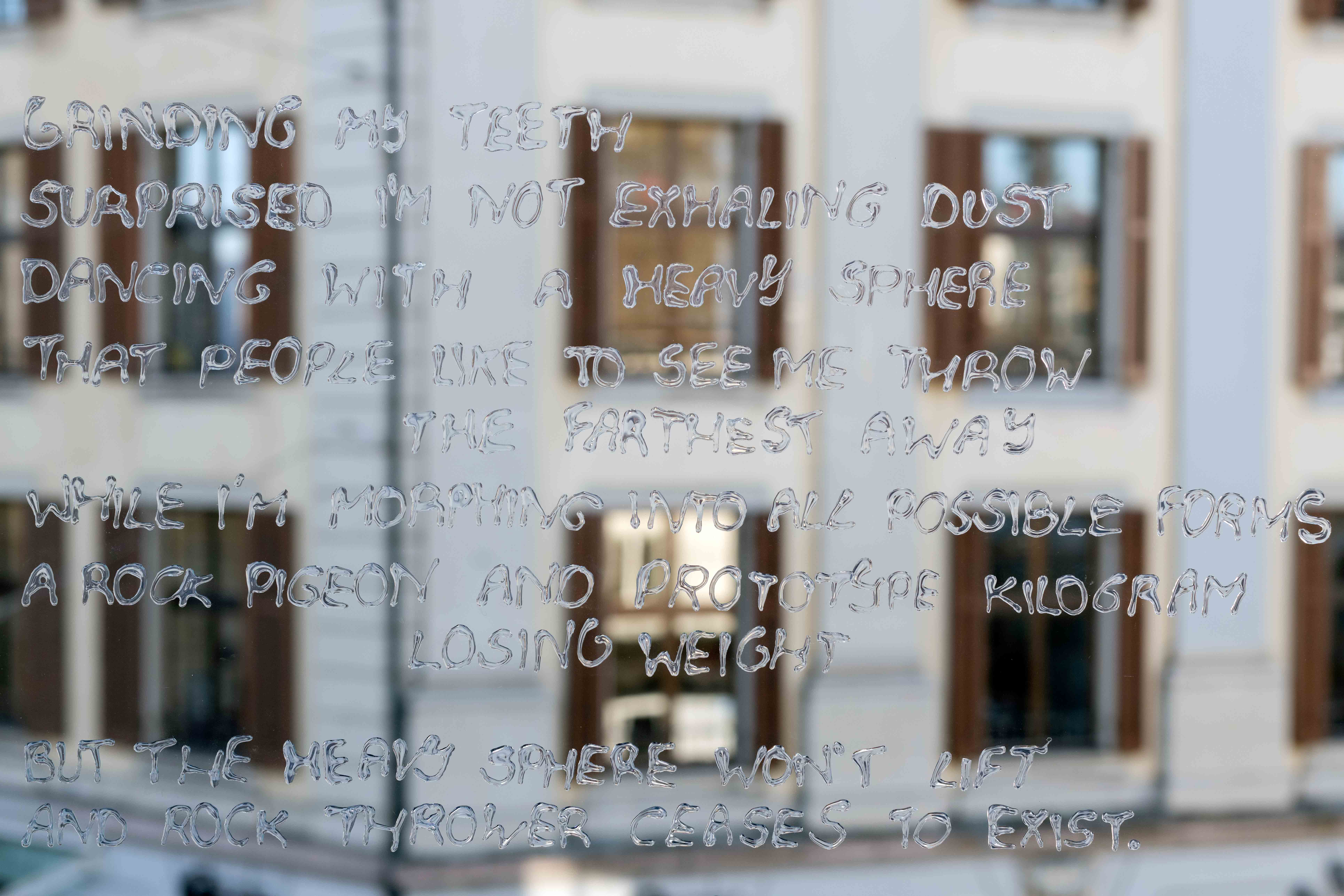︎ 21_2.1
Martian M. Mächler in collaboration with Ludwig Schilling
Opening
Friday, 11.2.2022
4pm –– 8pm
Kreuzbühlstrasse 1, Zurich
Open on Friday, Saturdays und Sundays
12 –– 6pm
and by appointment
bird@wasteland.earth
+4176 528 16 23
Can a messenger ever deliver that which cannot be said?
The work of Martian M. Mächler is shown at Wasteland, housed in Haus zum Falken (House of the Falcon). Taking a cue from this creature, this work invites us to view language from a birds eye view, rendering through what Federico Campagna calls “Absolute Language.” When Campagna writes about this absoluteness of words, he describes an attempt to wholly capture the world around us; to relinquish the idea of anything outside of defined words. He places “Absolute Language” in contrast to “the ineffable” - forms of communicating which are able to reconstruct the world around us - to actively shape, and re-shape it’s reality-settings. The ineffable represents ways which escape being captured by descriptive language, negating all attempts to put it into ‘work’”. act 3 begins here, at the throat of the ineffable.
Built in 1819, the rooms housing act 3 will soon be demolished to make way for the construction of a new building at the closing of the exhibition. Upon entering this vanishing space, an encounter is established with five characters. The gooey words of these figures temporarily inhabit the windows that make up the world of the space. The audio-scenography, a collaboration with Ludwig Schilling, transmits sounds of the rain, imitations of memories, and moments of uncanny repetitions. This buzzing communi- cation seeps through the various speakers in the space, suggesting possible encounters. Through sound, text and distance, Mächler fragments the idea of a whole self, into a body comprised of many disparate characters. In this fractured soma which miscommunicates and dissociates from itself, each character acts as a guardian, or bodyguard of sorts. Yet, rather than negate this contradictory self, a mode of polyphonic uttering is embraced. Mächler’s research on trauma and psychological therapy models informs this poetic approach towards bodily communication, to the self and to the outside world. Thus, the permeability of language is discovered when pre-existing vocabularies are questioned, as words meld and sounds fill.
I have met these characters before, although they had different names then. We encountered each other in a classroom for a performance collaboration in 2019. Back then I played the role of a post- woman, a person who delivered their messages. I travelled to meet many guardians. Some lived on theater stages, others gave lecture presentations, and one even taught classes in a school. But there is something you should know about the circumstances under which I could deliver the mail. Delivery was only possible when it rained - when paper was wet and words were blurred. I can’t tell you how many times I packed letters full of tears. It seemed clumsy at first, to deliver when it was most wet, how would anyone decipher what the other was trying to say? Eventually though, I understood the slippery comfort of communicating through rain.
Mächler’s exhibition at Wasteland allows a different way for memories to be deposited. Within the poems housed on the windows, and the audio melting through the speakers, the role of the body is actively considered. Thus to describe the ways that a body might communicate within itself and to the outside world attempts to understand how language often fails, and how an ineffable mode of speaking might sound, feel or look like. The audio-scenography by and with Ludwig Schilling places sound as a generous messenger, and the sculptural textile piece in the entrance of the space could perhaps initiate a return to a shared body. Mächler’s exhibit and audio-scenography is the first spatial staging for a book of poems titled “i left my body behind” which will be published this fall.
Anastasia McCammon
act 3
Martian M. Mächler in collaboration with Ludwig Schilling
12.2.2022 —27.2.2022
Opening
Friday, 11.2.2022
4pm –– 8pm
Kreuzbühlstrasse 1, Zurich
Open on Friday, Saturdays und Sundays
12 –– 6pm
and by appointment
bird@wasteland.earth
+4176 528 16 23
Can a messenger ever deliver that which cannot be said?
The work of Martian M. Mächler is shown at Wasteland, housed in Haus zum Falken (House of the Falcon). Taking a cue from this creature, this work invites us to view language from a birds eye view, rendering through what Federico Campagna calls “Absolute Language.” When Campagna writes about this absoluteness of words, he describes an attempt to wholly capture the world around us; to relinquish the idea of anything outside of defined words. He places “Absolute Language” in contrast to “the ineffable” - forms of communicating which are able to reconstruct the world around us - to actively shape, and re-shape it’s reality-settings. The ineffable represents ways which escape being captured by descriptive language, negating all attempts to put it into ‘work’”. act 3 begins here, at the throat of the ineffable.
Built in 1819, the rooms housing act 3 will soon be demolished to make way for the construction of a new building at the closing of the exhibition. Upon entering this vanishing space, an encounter is established with five characters. The gooey words of these figures temporarily inhabit the windows that make up the world of the space. The audio-scenography, a collaboration with Ludwig Schilling, transmits sounds of the rain, imitations of memories, and moments of uncanny repetitions. This buzzing communi- cation seeps through the various speakers in the space, suggesting possible encounters. Through sound, text and distance, Mächler fragments the idea of a whole self, into a body comprised of many disparate characters. In this fractured soma which miscommunicates and dissociates from itself, each character acts as a guardian, or bodyguard of sorts. Yet, rather than negate this contradictory self, a mode of polyphonic uttering is embraced. Mächler’s research on trauma and psychological therapy models informs this poetic approach towards bodily communication, to the self and to the outside world. Thus, the permeability of language is discovered when pre-existing vocabularies are questioned, as words meld and sounds fill.
I have met these characters before, although they had different names then. We encountered each other in a classroom for a performance collaboration in 2019. Back then I played the role of a post- woman, a person who delivered their messages. I travelled to meet many guardians. Some lived on theater stages, others gave lecture presentations, and one even taught classes in a school. But there is something you should know about the circumstances under which I could deliver the mail. Delivery was only possible when it rained - when paper was wet and words were blurred. I can’t tell you how many times I packed letters full of tears. It seemed clumsy at first, to deliver when it was most wet, how would anyone decipher what the other was trying to say? Eventually though, I understood the slippery comfort of communicating through rain.
Mächler’s exhibition at Wasteland allows a different way for memories to be deposited. Within the poems housed on the windows, and the audio melting through the speakers, the role of the body is actively considered. Thus to describe the ways that a body might communicate within itself and to the outside world attempts to understand how language often fails, and how an ineffable mode of speaking might sound, feel or look like. The audio-scenography by and with Ludwig Schilling places sound as a generous messenger, and the sculptural textile piece in the entrance of the space could perhaps initiate a return to a shared body. Mächler’s exhibit and audio-scenography is the first spatial staging for a book of poems titled “i left my body behind” which will be published this fall.
Anastasia McCammon

Exhibition views by Flavio Karrer












